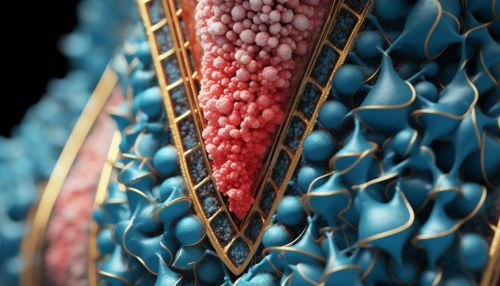Thyroid hormones
Introduction
Thyroid hormones are two iodine-containing compounds, triiodothyronine (T3) and thyroxine (T4), produced by the thyroid gland. These hormones play a crucial role in the body's metabolism, growth, and development.
Production and Regulation
The production of thyroid hormones is regulated by a complex feedback loop involving the hypothalamus and the pituitary gland. The hypothalamus releases thyrotropin-releasing hormone (TRH), which signals the pituitary gland to produce thyroid-stimulating hormone (TSH). TSH then stimulates the thyroid gland to produce and release T3 and T4.


Function
Thyroid hormones have a wide range of functions in the body. They regulate the body's metabolic rate, influence growth and development, and play a role in maintaining body temperature and heart rate.
Metabolic Regulation
Thyroid hormones increase the body's overall metabolic rate. They stimulate the breakdown of glucose for energy and increase the rate of protein synthesis. They also promote lipolysis, the breakdown of fats to release fatty acids.
Growth and Development
Thyroid hormones are essential for normal growth and development. They are particularly important in the development of the nervous system in fetuses and infants.
Body Temperature and Heart Rate
Thyroid hormones increase the body's heat production, helping to maintain body temperature. They also increase heart rate and contractility, contributing to an overall increase in cardiac output.
Disorders Related to Thyroid Hormones
There are several disorders related to the overproduction (hyperthyroidism) or underproduction (hypothyroidism) of thyroid hormones.
Hyperthyroidism
Hyperthyroidism is a condition characterized by an overactive thyroid gland, leading to an excess production of thyroid hormones. Symptoms can include rapid heart rate, weight loss, nervousness, and irritability. Graves' disease is the most common cause of hyperthyroidism.
Hypothyroidism
Hypothyroidism is a condition characterized by an underactive thyroid gland, leading to a deficiency of thyroid hormones. Symptoms can include fatigue, weight gain, depression, and sensitivity to cold. Hashimoto's thyroiditis is the most common cause of hypothyroidism.
